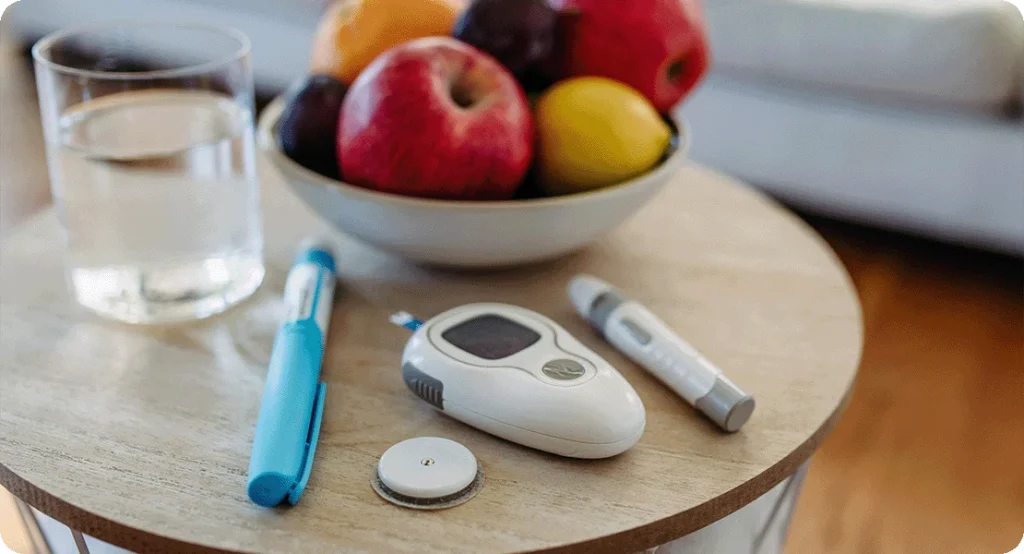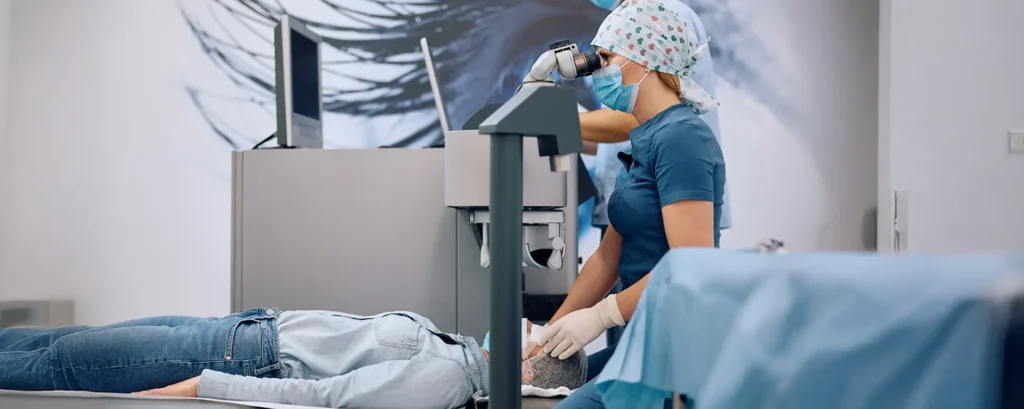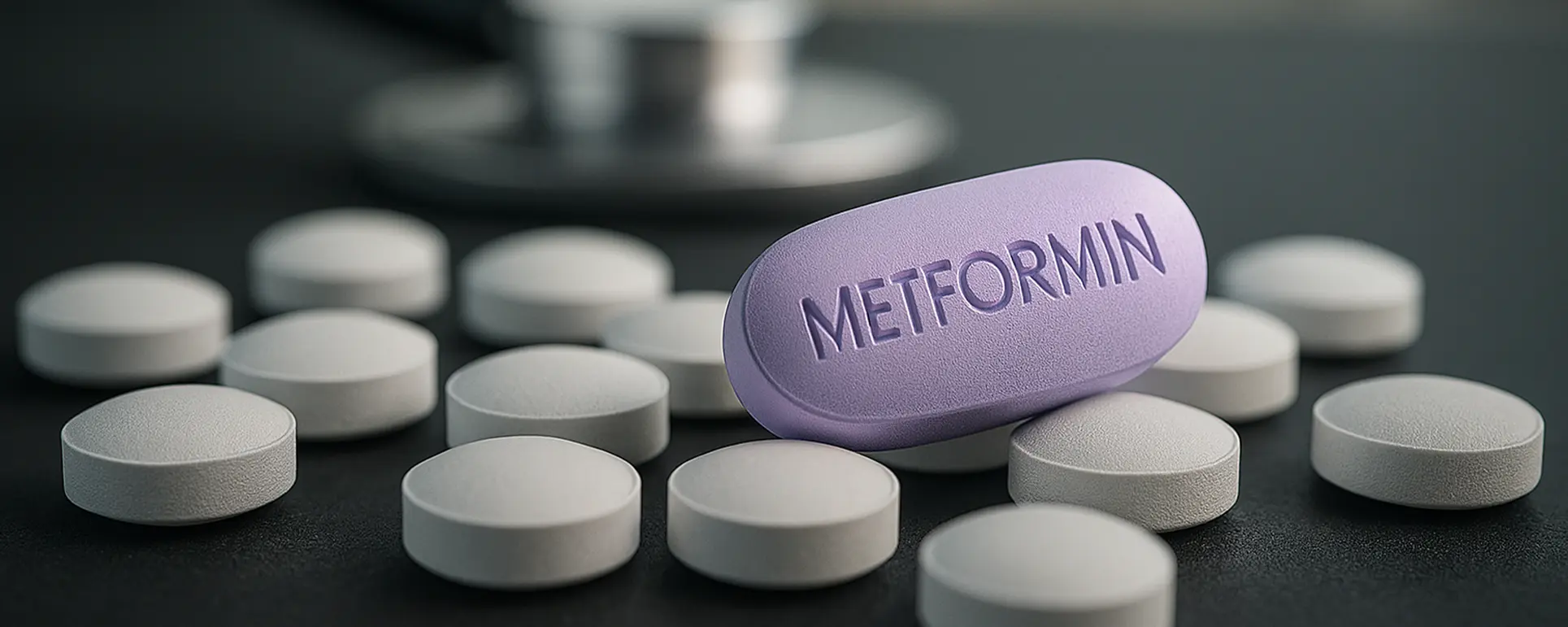If you’re taking metformin for type 2 diabetes and your doctor has recommended cataract surgery, it’s normal to have a lot of questions. How will your diabetes affect the procedure? Should you stop taking your medication beforehand? Will your blood sugar stay stable during recovery? These are important concerns—and the good news is that with proper planning, most people taking metformin can safely and successfully undergo cataract surgery.
In this article, we’ll guide you through exactly what you need to know, covering everything from how your surgical team coordinates with your GP, to why blood sugar monitoring is so essential in the days before and after surgery. We’ll also look at what role metformin plays in recovery and how to manage any medication adjustments along the way.
What Is Metformin and Why Is It Important for Diabetic Patients?
Metformin is one of the most commonly prescribed medications for people with type 2 diabetes. It helps lower blood sugar levels by improving how your body responds to insulin and reducing the amount of sugar your liver releases. It’s often used as a first-line treatment and may be taken on its own or with other medications.
Its popularity comes down to its effectiveness and low risk of causing low blood sugar on its own. But when you’re heading into surgery—especially one like cataract removal, which may involve fasting, anaesthesia, and recovery—your metformin use needs to be looked at carefully. That’s because your body’s response to stress, fasting, and changes in routine can all affect your blood sugar and your risk for certain rare complications.
Cataract Surgery: Why Diabetic Patients Need a Tailored Approach

For people with diabetes, cataract surgery requires extra planning. That’s because diabetes can affect the eye in several ways—not just through cataracts, but also through diabetic retinopathy, macular oedema, and slower healing. This means your ophthalmologist needs to assess your retina carefully before surgery and make sure there are no signs of active disease that could interfere with your visual outcome.
If you’re on metformin, the team will also consider your kidney function, your risk for lactic acidosis (a rare but serious complication), and how stable your blood sugar levels are in general. All of this helps ensure your operation goes smoothly and your recovery is as uneventful as possible.
Should You Stop Taking Metformin Before Cataract Surgery?
This is one of the most common questions diabetic patients ask—and the answer depends on several factors. In some cases, your surgical team may advise you to temporarily stop metformin for a short time before and after the surgery. The reason? During the stress of surgery or if you’re receiving contrast dye or certain anaesthetics, there’s a very small risk of lactic acidosis. It’s rare, but your care team won’t take chances.
However, for most cataract surgeries performed under local anaesthetic and without intravenous contrast, this risk is minimal. That means many patients can continue metformin right through the process, though your surgeon or anaesthetist may adjust the timing or dose around the day of surgery.
The Role of Kidney Function in the Decision
One key reason metformin might be paused is your kidney function. If your kidneys aren’t working optimally, metformin can build up in your system and increase the risk of lactic acidosis. Cataract surgery itself is relatively low stress on the kidneys, but if you’re also dehydrated from fasting or have had a recent contrast scan, your team may recommend a temporary pause to protect your health.
Your kidney function is typically monitored through a test called eGFR (estimated glomerular filtration rate). If your eGFR is lower than 30 ml/min, most guidelines recommend avoiding metformin. But if your kidney function is stable and you’re otherwise healthy, the risk is very low.
Anaesthetic Considerations for Metformin Users
Most cataract surgeries in the UK are performed using local anaesthesia—either eye drops or a small injection near the eye. This significantly reduces the risk of complications related to general anaesthesia or drug interactions. Still, your anaesthetist or surgical team will want to know if you’re taking metformin and other diabetes medications.
If sedation is used or if you’re having surgery on both eyes in a single session, your team may be more cautious with your diabetes medications. You’ll be given clear instructions about when to stop eating, how to take your usual pills, and what to expect during recovery.
Managing Blood Sugar Around the Time of Surgery
Surgery can be stressful on the body—even a quick day procedure like cataract removal. This stress can raise your blood sugar levels. On the other hand, fasting before surgery or reduced food intake afterwards can lower your levels, especially if you’re still taking your usual diabetes medications.
That’s why blood sugar monitoring is so important around the time of surgery. You’ll likely be asked to check your glucose levels more frequently and may be advised to adjust your medications slightly depending on your eating pattern. Your GP or diabetes nurse may also be involved in helping you plan the safest approach.
What Happens After Surgery for People Taking Metformin?

Once your surgery is complete, the focus shifts to healing—and that includes keeping your blood sugar levels stable. High blood sugar can slow wound healing and increase the risk of infection, so keeping it in check is important for your eye recovery. Most people can resume their usual metformin dose quite soon after surgery, unless there are complications.
You may notice some temporary blurry vision or mild discomfort, but these are normal. Your care team will give you a full aftercare plan, including how to restart your medications, how often to monitor your glucose, and when to come back for follow-up.
Eye Healing in Diabetic Patients: What’s Different?
Even with good diabetes control, healing from cataract surgery can sometimes be slower in diabetic patients. This is especially true if you’ve had diabetes for many years, or if you’ve had complications like retinopathy or macular oedema. That’s why close monitoring is essential.
If any swelling or inflammation occurs in the retina, your doctor may prescribe anti-inflammatory eye drops or even injections to protect your sight. Having diabetes doesn’t mean your outcome will be poor—but it does mean your surgeon will keep a closer watch and may personalise your aftercare a little more.
Communication Is Key: Coordinating Your Medical Team
One of the most important things you can do as a diabetic patient is keep all your medical providers in the loop. That includes your GP, ophthalmologist, diabetes nurse, and anyone else involved in your care. Cataract surgery may seem like a small event, but it touches on several areas of your health—so coordination matters.
Bring a full list of your medications to your pre-surgery assessment and be open about your blood sugar patterns, recent lab results, and any concerns you have. This allows your surgeon to plan the safest and most effective approach for your unique situation.
FAQs: Metformin and Cataract Surgery
- Should I stop taking metformin before cataract surgery?
In many cases, you won’t need to stop metformin before cataract surgery, especially if you’re having the procedure under local anaesthetic without intravenous contrast. However, your doctor may advise a temporary pause if you have reduced kidney function or if the surgery involves fasting, sedation, or other medications that could increase the risk of lactic acidosis. It’s best to follow personalised advice from your surgical team, who will base their recommendations on your full medical history. - Why does kidney function matter when taking metformin before surgery?
Metformin is processed through the kidneys, and if your kidney function is reduced, the medication can build up in your system. This increases the rare but serious risk of a complication called lactic acidosis, which is why your eGFR (a measure of kidney health) is checked before surgery. If your kidney function is good, you can usually continue metformin safely, but if it’s low, your team may recommend stopping it for a short period around your operation. - What happens if I skip metformin before surgery? Will my blood sugar rise too much?
Missing a dose or two of metformin is unlikely to cause a major problem, especially if your diabetes is generally well controlled. Your blood sugar may rise slightly, but this is often temporary and manageable. Your medical team will monitor your levels closely and, if needed, adjust other medications to maintain stability. It’s always safer to follow surgical instructions than to risk complications by taking medications that could interfere with anaesthesia or kidney function. - Can metformin affect anaesthesia during cataract surgery?
Metformin itself doesn’t directly interact with local anaesthesia, which is what most cataract surgeries use. However, concerns can arise if intravenous contrast dye or general anaesthesia is planned, as these factors can put more strain on the kidneys. Although this is rarely relevant for routine cataract surgery, your anaesthetist still needs to know about all your medications so they can assess any potential risks and adjust your care accordingly. - Will I need to fast before cataract surgery if I’m diabetic?
Yes, even as a diabetic patient, you may be asked to fast for several hours before your procedure, depending on the anaesthesia used. This helps reduce the risk of complications during surgery. You’ll be given clear instructions on when to stop eating and whether to take your morning dose of metformin or other medications. Managing your blood sugar while fasting can be tricky, so your care team will help you create a safe plan tailored to your needs. - What signs should I watch for after surgery if I’m taking metformin?
After surgery, you should watch for any signs of low blood sugar, such as shakiness, dizziness, or confusion—especially if you’re eating less than usual. Also keep an eye on your vision and eye comfort, looking out for increasing redness, pain, or discharge, which could suggest infection. Unusual tiredness, muscle cramps, or breathing difficulties should be reported right away, as these could indicate rare complications like lactic acidosis. Staying in touch with your doctor during recovery is key. - Is it safe to restart metformin right after surgery?
In most cases, you can restart metformin within 24 to 48 hours after cataract surgery, as long as there were no complications and your kidney function remains stable. Your doctor will usually confirm this at your follow-up or in your discharge instructions. Restarting too soon without the green light could pose a risk if you’ve been dehydrated or had any changes in kidney function, so it’s important to wait for official approval before resuming the medication. - Does metformin affect eye healing after cataract surgery?
Metformin does not directly interfere with healing of the eye following cataract surgery. However, poorly controlled blood sugar levels—regardless of which diabetes medication you’re on—can slow wound healing and increase the risk of infection. That’s why your recovery plan will include strategies for maintaining steady glucose levels during the healing process. Staying on top of your diabetes care will give your eyes the best chance of a smooth recovery. - Can I take other diabetes medications during the time of surgery?
Yes, but you may need to adjust the dose or timing of certain medications depending on your eating schedule and fasting instructions. For instance, insulin or sulfonylureas may increase your risk of low blood sugar if taken without food. Your diabetes nurse, GP, or anaesthetist will guide you on which medications to take, skip, or reduce in the days around your operation. It’s important not to guess—always follow the personalised plan you’re given. - Will cataract surgery improve my vision if I have diabetic retinopathy?
It depends on the severity of your diabetic retinopathy. If your retina is still relatively healthy, cataract surgery can lead to a significant improvement in vision. However, if there’s advanced retinal damage, macular oedema, or active bleeding, the benefits may be more limited. Your eye surgeon will perform detailed scans of the retina before surgery and give you a clear, honest outlook based on your individual eye health. You’ll also be monitored more closely after surgery if retinopathy is present.
Final Thoughts: Metformin and Cataract Surgery Can Work Well Together
If you’re managing type 2 diabetes with metformin and planning cataract surgery, the most important thing to remember is that a safe and successful outcome is absolutely achievable. With clear communication, careful planning, and proper monitoring of your blood sugar and kidney function, you can expect a smooth experience and meaningful visual improvement.
At London Cataract Centre, we routinely care for patients with diabetes and tailor every step of the journey—from pre-operative assessments to recovery plans—to your individual needs. Our team works closely with your GP and diabetes care team to ensure everything from medication timing to anaesthetic planning is handled with precision.
You don’t have to navigate this process alone. Whether you’re wondering about when to stop metformin or how to monitor your glucose during recovery, we’re here to guide you through it all with expert, patient-centred care.
References
- Li, J., Yang, J., Liu, Z., & Li, X. (2025). Effect of metformin on the level of aqueous humour inflammatory cytokines in patients with cataract. Scientific Reports, 15: 3672. Available at: https://www.nature.com/articles/s41598-024-81424-9
- Patnaik, J. L., Christopher, K. L., Pedler, M. G., & Petrash, J. M. (2021). The protective effect of metformin use on early Nd laser capsulotomy. Investigative Ophthalmology & Visual Science, 62(10): 24. Available at: https://pubmed.ncbi.nlm.nih.gov/34415985/
- Sadeghi, E. (2025). An update on ocular effects of antidiabetic medications. Ophthalmic Research Journal. Available at: https://www.sciencedirect.com/science/article/pii/S0039625725000190
- Xu, W., Liang, Y., Zhu, Y., Sun, T., Yuan, Z., & Han, X. (2023). Proteomic study of aqueous humour in diabetic patients with cataracts using TMT and HPLC‑MS/MS. BMC Ophthalmology, 23: 435. Available at: https://bmcophthalmol.biomedcentral.com/articles/10.1186/s12886-023-03162-2

